Car names often carry deep meanings and stories that reflect their history and appeal. These model names can represent powerful legends, geographical ties, or even the brands’ aspirations. Understanding the origins of these names can reveal why certain cars resonate deeply with consumers and how they shape the perception of the automotive industry.

From the iconic Ford Mustang to the unique names of luxury brands, the naming of cars is an art that involves creativity, strategy, and culture. Each name is carefully crafted to evoke emotions, capture attention, and make a lasting impression. By exploring these fascinating names, readers will uncover a world where marketing meets tradition and creativity fuels innovation.
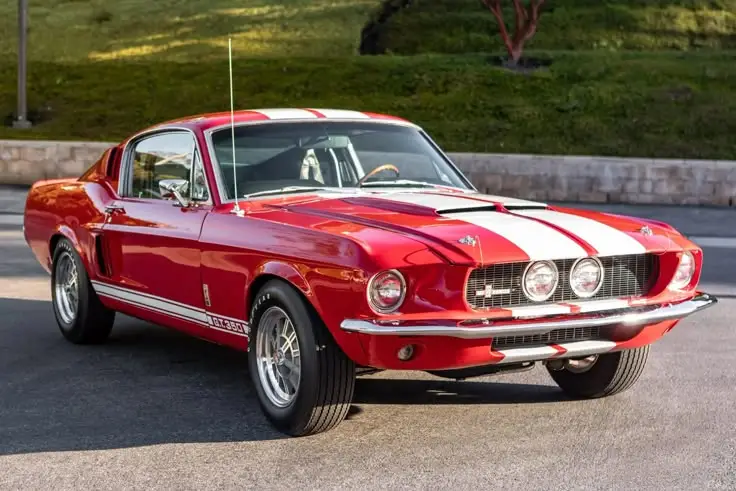
In this article, car enthusiasts and casual readers alike will embark on a journey through the meanings and backstories of famous car model names. They’ll discover how these names have evolved and what influences the naming conventions used by car companies around the globe.
Key Takeaways
- Car names can reveal historical and cultural significance.
- Naming conventions influence consumer attraction and loyalty.
- A variety of factors contribute to the evolution of model names.
Unraveling the Alphabet Soup: Understanding Car Name Acronyms

Car manufacturers often use acronyms and codes in their model names to convey specific information about the vehicle. This approach can reflect the car’s features, performance, or position in the brand lineup. Understanding these acronyms can help buyers make informed decisions.
Acura’s Alpha Numeric Mastery: Integra, TL, and More
Acura utilizes alphanumeric designations effectively. The Integra is known for its sporty appeal, while TL stands for “Touring Luxury,” highlighting its focus on comfort and high-end features. Other models like the MDX emphasize the size and capability, as it stands for “Multi-Dimensional” crossover. Acura’s naming strategy creates a clear image of what each model represents, making it easier for customers to choose based on their needs.


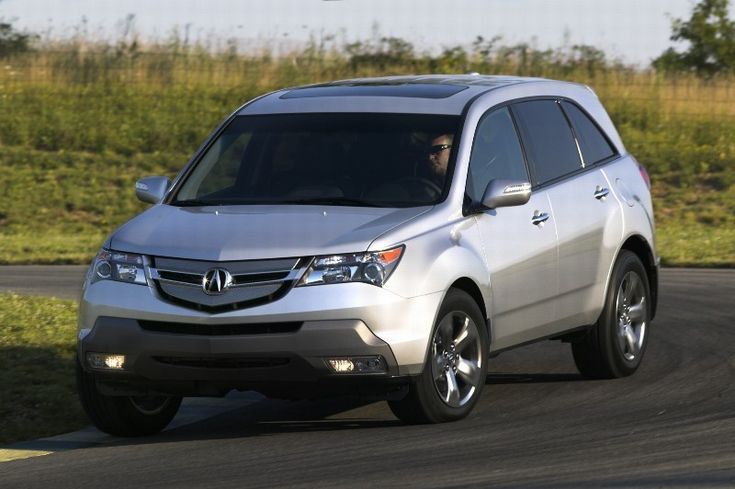
BMW’s Series and Beyond: Deciphering the Numbers
BMW’s system primarily consists of a combination of letters and numbers. For instance, the 3 Series typically signifies compact luxury sedans, while a 5 Series denotes a larger luxury car. The letters like x and i indicate specific variations. Models like X1 and i3 incorporate functionality and technology focus. This structure helps consumers locate their preferred vehicle type and understand performance expectations.
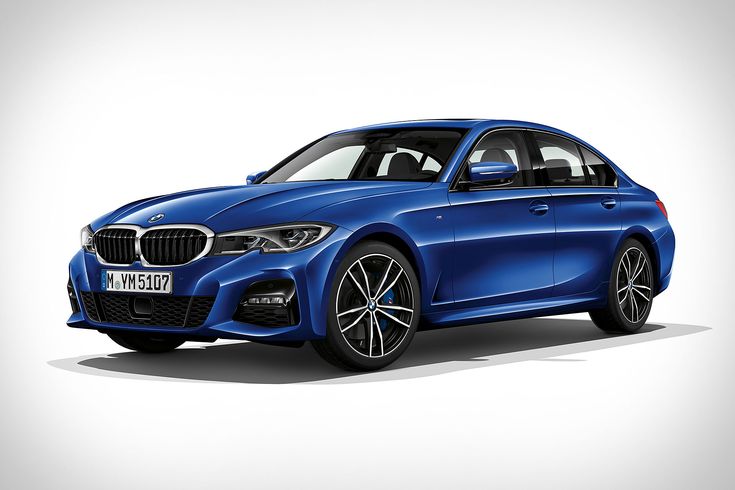



From Q to X: The Taxonomy of Infiniti
Infiniti employs a straightforward naming system where letters identify model categories. The Q series is for sedans and coupes, while the QX label is designated for SUVs. For example, the Q50 is a luxury sedan, whereas the QX80 is a full-size SUV. This naming clarity allows buyers to quickly gauge the vehicle’s style and size, enhancing their shopping experience.

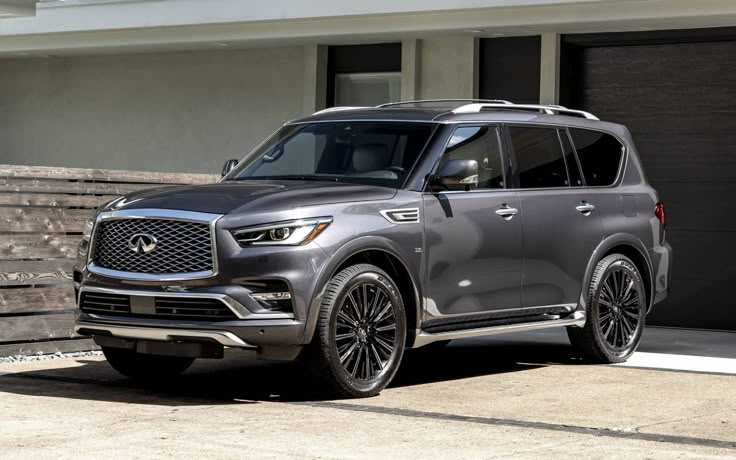
Automotive Legends and Their Monikers

The world of automobiles is filled with stories of legendary models. Each name carries its own history and significance, often tied to the brand’s identity. This section explores the storied names of iconic cars, highlighting how they reflect innovation and culture.
Ford’s Historic Lineup: Mustang, Model T, and Probe
Ford has a rich history of creating memorable cars, and their model names often tell significant tales. The Mustang, introduced in 1964, symbolizes freedom and power. Inspired by the P-51 Mustang fighter plane, it quickly became an icon of American muscle.
The Model T was another breakthrough for Ford. Launched in 1908, it democratized car ownership in the U.S. The name suggests simplicity and reliability, which resonated with many Americans.
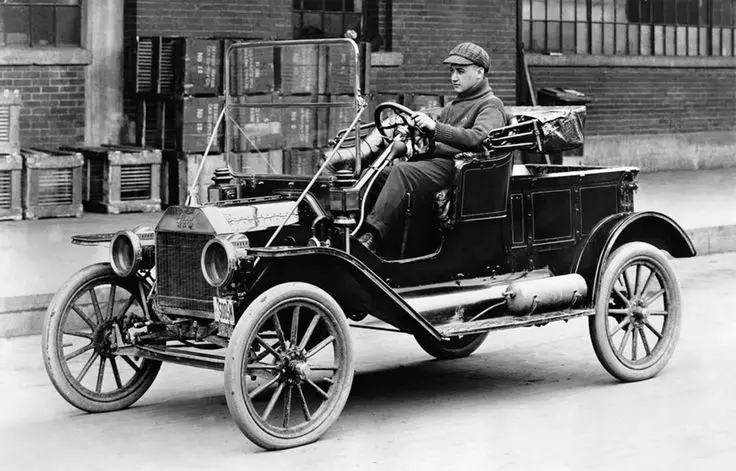
The Probe, introduced in the late 1980s, was part of Ford’s effort to innovate and capture a younger audience. Although not as legendary as the Mustang, the Probe’s name hints at a quest for new designs and ideas.
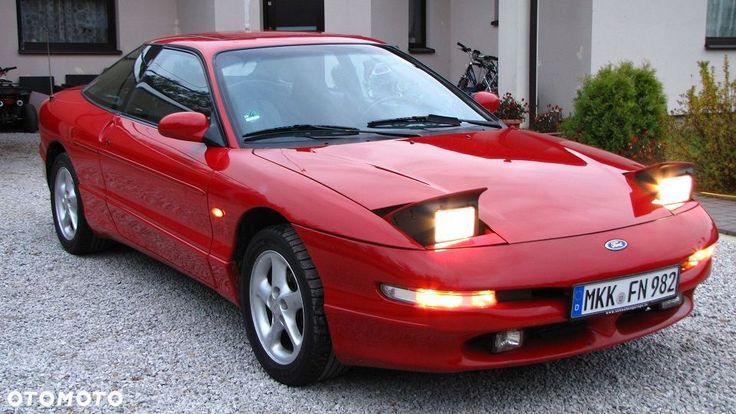
The Evolution of Mercedes-Benz: Classifying the Classy
Mercedes-Benz has crafted a name for itself synonymous with luxury and performance. Their model nomenclature—including the C-Class, E-Class, and S-Class—reflects a clear system of distinction.



The C-Class represents the compact category, focusing on sporty performance. In contrast, the E-Class is known for elegance and comfort. The S-Class stands as the flagship, showcasing the pinnacle of luxury with advanced technology.
Mercedes has also adopted legendary names like the G-Class for its rugged SUVs. This name emphasizes strength and capability, appealing to adventurers and luxury seekers alike.
Legendary Japanese Innovations: The Story of the Nissan Z Cars
Nissan’s Z cars have captured the imaginations of car enthusiasts since the 1970s. The original Datsun 240Z was designed to compete globally, offering a blend of performance and affordability.

The name “Z” symbolizes a straightforward and powerful identity. Over the years, models like the 300ZX and the latest Z continue this legacy, merging heritage with modern technology.

Each iteration has maintained a focus on sportiness and innovation. Nissan’s commitment to the Z brand illustrates how a model name can encapsulate a company’s vision and connect with fans around the world.
A Global Tour of Car Name Origins

Car names often reflect cultural significance, historical context, and the brand’s vision. This section explores how names link to their geographic roots, showcasing a selection of well-known manufacturers from different regions.
European Elegance: Volvo, Mercedes, and BMW
In Europe, car manufacturers frequently draw inspiration from their heritage. Volvo originates from the Latin word meaning “I roll,” fitting for a company focused on safety and functionality.
Mercedes-Benz is named after Mercedes Jellinek, the daughter of a dealer. This brand embodies luxury and precision. BMW, short for Bayerische Motoren Werke, translates to Bavarian Motor Works, highlighting its origins in Bavaria, Germany.
These brands represent quality craftsmanship, focusing on innovation and style tailored for a discerning European market.
The Heartbeat of America: Chevrolet’s Iconic Names
In America, automotive branding often reflects the spirit of adventure and the heart of the nation. Chevrolet, founded by racer Louis Chevrolet, boasts names like “Camaro” and “Impala,” which evoke speed and freedom.
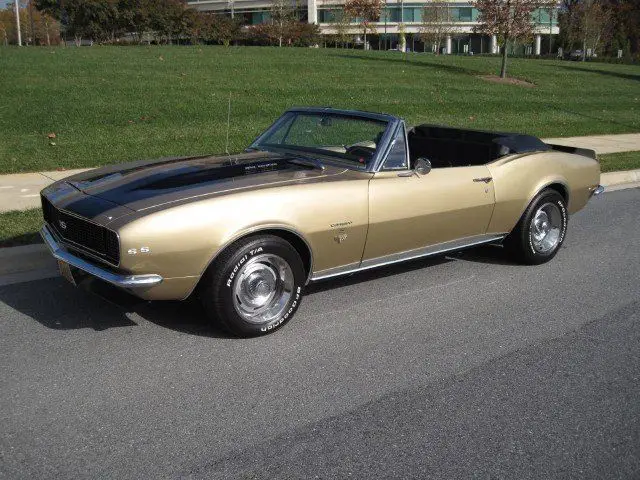

Each name tells a story. The Chevrolet Suburban, for example, derives from a suburb of Los Angeles, emphasizing space and family. Similarly, the “Corvette” evokes images of American sports car culture.
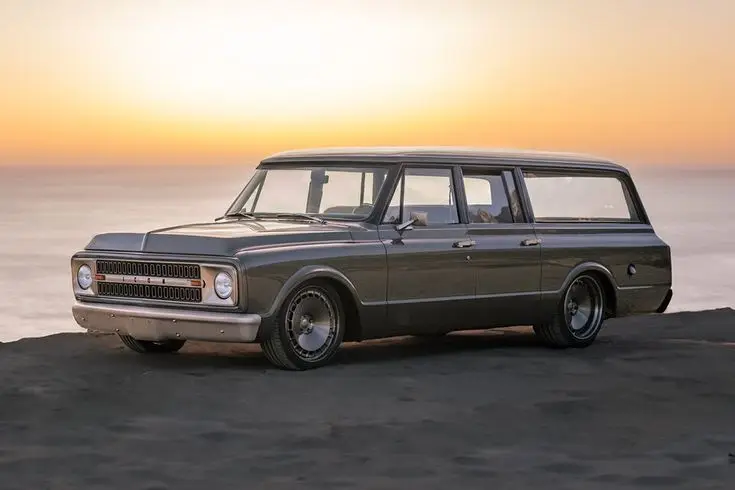
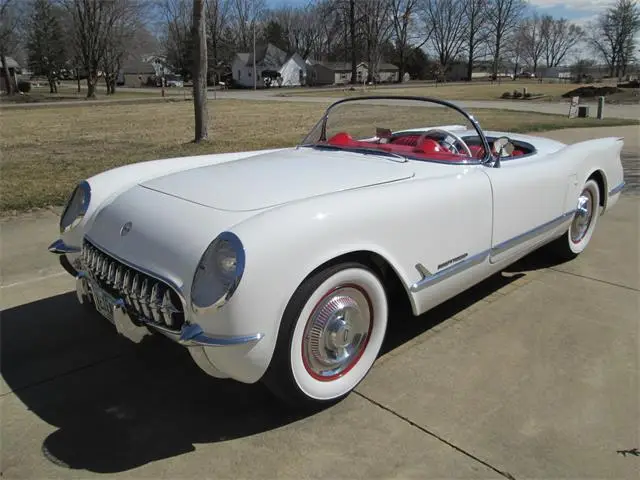
American car names often aim to captivate a broad audience, resonating with themes of aspiration and mobility.
Japan’s Finest: Toyota, Nissan, and the Rise of Lexus
Japanese manufacturers often focus on reliability and technological advancement. Toyota, one of the largest automakers, derives its name from the founder Kiichiro Toyoda, which means “fertile rice paddy.”
Nissan also emphasizes innovation, with models like the “Skyline” that symbolize forward momentum. This name is linked to the famous skyline of cities like Yokohama, reflecting modernity and urban life.
The Lexus brand, part of Toyota, signifies luxury. Its name was designed to evoke elegance and sophistication, combining the words “luxury” and “elegance.” This approach embodies Japan’s commitment to quality and advanced engineering, setting high standards in the automotive world.
Naming Evolutions in Automotive Industry

The automotive industry’s naming conventions have evolved significantly. Manufacturers now consider factors like technology, market trends, and consumer preferences when naming their vehicles. This shift reflects the changing landscape of the automotive market.
Electric Vehicles: From Leaf to Tesla
Electric vehicles (EVs) have introduced new naming strategies. Nissan’s Leaf symbolizes nature and sustainability, appealing to eco-conscious consumers. In contrast, Tesla opts for names like Model S and Model 3, emphasizing innovation and technology.
By choosing straightforward alphanumeric names, Tesla has positioned itself as a leader in the EV sector. This approach makes it easy for consumers to identify the brand’s offerings while highlighting its focus on advancement.
The Crossover Era: Blending Categories with Names
Crossover vehicles have blurred the lines between traditional categories, leading to creative naming conventions. Cars like the Toyota RAV4 and Honda CR-V encapsulate qualities of both SUVs and sedans.


These names communicate versatility and appeal to a broader audience. Manufacturers aim to attract buyers who want the practicality of an SUV with the comfort of a car. Unique names not only highlight these features but also help differentiate models in an increasingly crowded market.
Special Editions: When Car Names Signify More
Special edition vehicles often carry names that evoke exclusivity or commemorate significant events. The Ford Mustang Shelby GT500 honors a legendary figure in racing, attracting enthusiasts and collectors alike.

Other brands, such as Chevrolet, have created ZL1 and SS editions, which indicate performance enhancements and sporty design. These names can boost a model’s appeal, telling a story that resonates with consumers looking for something more than a standard vehicle.


Through creative naming, manufacturers can effectively communicate the essence and unique qualities of each car. This practice engages consumers by creating a sense of connection to the brand’s heritage and vision.
Psychology of Names: What Attracts Consumers

Names play a crucial role in attracting consumers to car models. They shape emotions, influence perceptions, and connect with aspirations. Understanding how names resonate with potential buyers helps manufacturers choose the right branding for their vehicles.
Emotion and Perception: How Names Influence Buyers
Car names evoke feelings that can significantly affect buyer choices. Names like “Accord” suggest harmony and reliability, appealing to families looking for dependable vehicles.
On the other hand, names such as “Civic” can suggest community and responsibility. These emotional connections create a sense of trust between the consumer and the product.
Consumers often identify with names that resonate with their personal experiences or aspirations. Selecting a name that conveys the right emotion can lead to a strong brand image and increased sales.
The Cool Factor: Names That Resonate with Youth
The youth market is particularly sensitive to car names. Trendy names, like “Fit,” attract younger drivers seeking style and modernity. They want a vehicle that reflects their lifestyle and individuality.
Unique names can differentiate a model in a crowded market, providing a competitive edge. A name with an edge, such as “Element,” brings a sense of adventure and fun.
Manufacturers often use catchy and memorable names to resonate with this demographic. The right name can make a car seem more appealing, boosting its desirability among younger buyers.
Aspirations and Inspirations: Naming for Dreams
Names that inspire dreams are powerful marketing tools. Cars named with aspirational qualities can motivate consumers to pursue a lifestyle they desire.
For example, the “Civic” brand encompasses values like responsibility and civic duty, making it attractive to buyers who value community.
Similarly, a name like “Accord” suggests harmony and balance, appealing to those aspiring to a peaceful life. Choosing names that align with consumer aspirations can create a lasting impression and loyalty to the brand.
Overall, by understanding the psychology behind naming, manufacturers can create effective strategies for attracting consumers.
Behind the Badge: The Significance of Naming Conventions

Car names play a crucial role in marketing and brand identity. They reflect the company’s heritage, connect with cultural elements, and even inspire innovation. Understanding these aspects can reveal why certain names resonate with consumers.
Names as Brand Extensions: Consistency and Heritage
Car manufacturers often use names as extensions of their brands to create a sense of consistency. For instance, Toyota’s luxury line, Lexus, maintains a connection to its parent brand while establishing its own identity.
Names like the Ford Mustang and Chevrolet Corvette carry historical weight. They evoke images of performance and American culture. The continuity in naming also helps build customer loyalty. When consumers feel a connection to a name, they are more likely to trust the brand.
The Impact of Culture and Language on Naming
Cultural influences shape how car names are perceived. For example, the name “Volkswagen,” which means “people’s car” in German, reflects its design philosophy. Similarly, names may translate differently in other languages. A name that sounds appealing in English might not have the same effect in a different culture.
Many companies consider local customs when naming vehicles. Nissan’s “Silvia” is a nod to the popular female name in Japan. By aligning names with cultural significance, brands can enhance their connection to specific markets. This practice helps in better reaching target audiences.
Concept Cars: The Wild World of Naming Dreams
Concept cars often have names that stir imagination and convey futuristic ideas. These names might not directly relate to the vehicle’s features but emphasize creativity. For instance, the Ford “Mustang Mach-E” blends heritage with new technology.
Concept names often reflect trends in culture and society. Designers may draw inspiration from science fiction, nature, or even mythology. This approach creates excitement around the vehicle and captures attention at auto shows.
Interestingly, names for these vehicles can shift throughout development. Initial concepts may undergo changes based on market feedback. This flexibility ensures that the final name aligns well with consumer expectations and branding goals.
Vehicles and Versatility: The Sense Behind SUV and Van Names

Names of SUVs and vans often reflect their purpose and features. These names can suggest adventure, family focus, or practicality. Understanding these aspects can enhance appreciation for the vehicles themselves.
The SUV Name Game: From Explorer to Highlander
SUV names often evoke a sense of adventure or strength. For instance, the Ford Explorer suggests a vehicle designed for discovery, appealing to those who enjoy outdoor activities.

Another example is the Toyota Highlander, which hints at rugged terrain and a high vantage point. The term “highlander” conjures images of both altitude and a connection to nature, making it attractive for families seeking spacious comfort alongside functionality.

Other SUV names like Verso indicate versatility and adaptability, emphasizing the vehicles’ suitability for various lifestyles, whether urban commuting or off-road escapades.
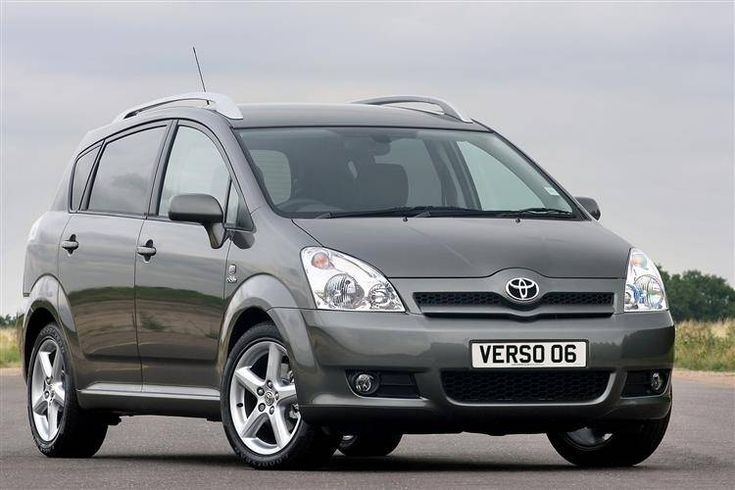
Vans: The Functional Charm in Names like Sienna and Odyssey
Vans typically carry names that highlight practicality and family-oriented design. The Toyota Sienna is a prime example, named after a picturesque Italian city. This evokes a sense of comfort and style, appealing to families looking for reliable transportation.

Honda Odyssey takes a different approach, referencing Homer’s epic poem about an adventurous journey. The name suggests that this van can handle all of life’s trips, from daily school runs to long family vacations.

These names reflect a mix of functionality and emotional connection, showing how vehicle names are carefully chosen to resonate with potential buyers.
Frequently Asked Questions

Car names often have fascinating histories and meanings. People are curious about how these names come about, the influence they have, and the stories behind them. Below are some common questions about car names.
What is the process behind naming car models?
Naming car models involves various steps. Companies consider themes, target audiences, and market trends. They also look for names that are catchy and easy to remember, while ensuring that they resonate with potential buyers.
Which car model is recognized as the most iconic globally?
The Ford Model T is often considered one of the most iconic car models worldwide. Launched in the early 1900s, it was affordable and accessible, which changed how people viewed automobiles. Its impact on the automotive industry remains significant even today.
Are there any unique cars that have been produced in a single unit?
Yes, some unique cars have been made as one-of-a-kind models. An example is the Bugatti La Voiture Noire, which was created as a tribute to the brand’s history. Such cars often become prized possessions for collectors.
How do car manufacturers select names with international appeal?
Manufacturers aim for names that resonate across different cultures. They often research language meanings and cultural associations. Names must avoid negative connotations while being memorable in various languages.
What are some examples of car names inspired by their origins or functions?
Many car names reflect their origins or functions. The Toyota Land Cruiser suggests off-road capability, while the Chevrolet Corvette hints at racing. Names often give insights into a car’s design or intended use.
Can the origin of a car’s name influence its brand perception?
Absolutely. A name can shape how consumers perceive a brand. For instance, a name with a powerful or adventurous connotation may suggest strength and reliability. This influence can impact sales and customer loyalty.
Here’s some more interesting information: How 30 Iconic Car Models Got Their Names – 24/7 Wall St.



